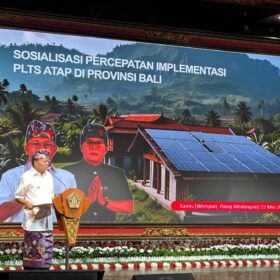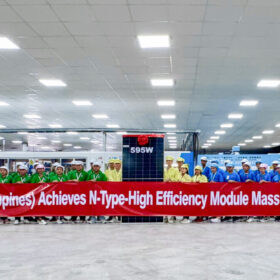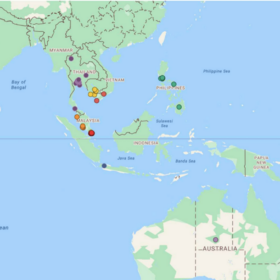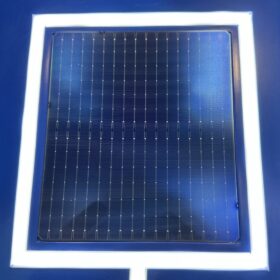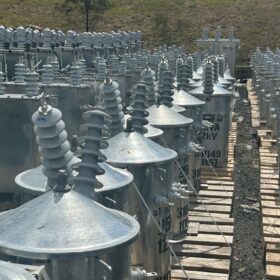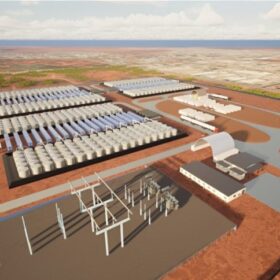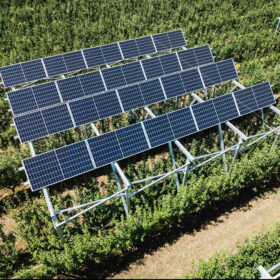World’s first offshore solar-wind project moves forward
An offshore solar farm is being deployed close to an existing wind farm as part of a project in the Dutch North Sea. The developers have recently installed an anchoring system that will hold the solar farm in place while an electrical cable connects the array to a nearby wind turbine foundation.
Improving perovskite solar cell durability via formamidinium cations
A team of São Paulo-based researchers have found incorporating formamidinium cations into methylammonium-based lead iodide perovskite films increases the durability of perovskite solar cells when fabricated and measured under ambient conditions.
Bali launches rooftop solar acceleration program
The Indonesian province of Bali plans to scale up rooftop solar installations across government buildings, public facilities, and businesses to reduce dependence on fossil-based electricity.
Gstar launches solar cell, module production in Philippines
Gstar has completed the first phase of its factory in the Philippines, set to produce 1 GW of solar modules and 1.5 GW of solar cells. The Singapore-based solar manufacturer says a planned second phase will take its solar module nameplate capacity to 2 GW.
Fiji seeking consultants for 10 MW of solar
A company in Fiji has launched a tender for a consulting firm to carry out a feasibility study for a proposed 10 MW ground-mounted solar plant. The deadline for applications is May 30.
Longi launches all-black back contact solar panel series
The EcoLife series brings Longi’s back contact technology to the residential solar market with panels that reportedly offer quicker system payback and reduced power degradation over time.
Malaysia introduces rooftop solar aggregation scheme
Malaysia’s first rooftop aggregation initiative for solar systems is now live. The program allows homeowners to lease or rent their rooftop for solar generation, with the electricity produced sold to commercial and domestic customers within a 5 km radius.
Sun-Ways inaugurates removable PV plant on railway tracks
Swiss startup Sun-Ways says it has activated what it calls the world’s first removable solar plant on active rail tracks, with passenger trains set to operate over the 18 kW installation from today.
SERIS launches solar asset management spinoff
The Solar Energy Research Institute of Singapore has launched PV Doctor, a startup that provides real-time monitoring and diagnostics to help solar installation owners maintain long-term asset value.
IEA blames slowdown in energy innovation on market uncertainty
The International Energy Agency warns that energy innovation is slowing as shifting priorities and financing changes hinder progress, despite past investments driving economic and security gains.


